Published on
Updated on
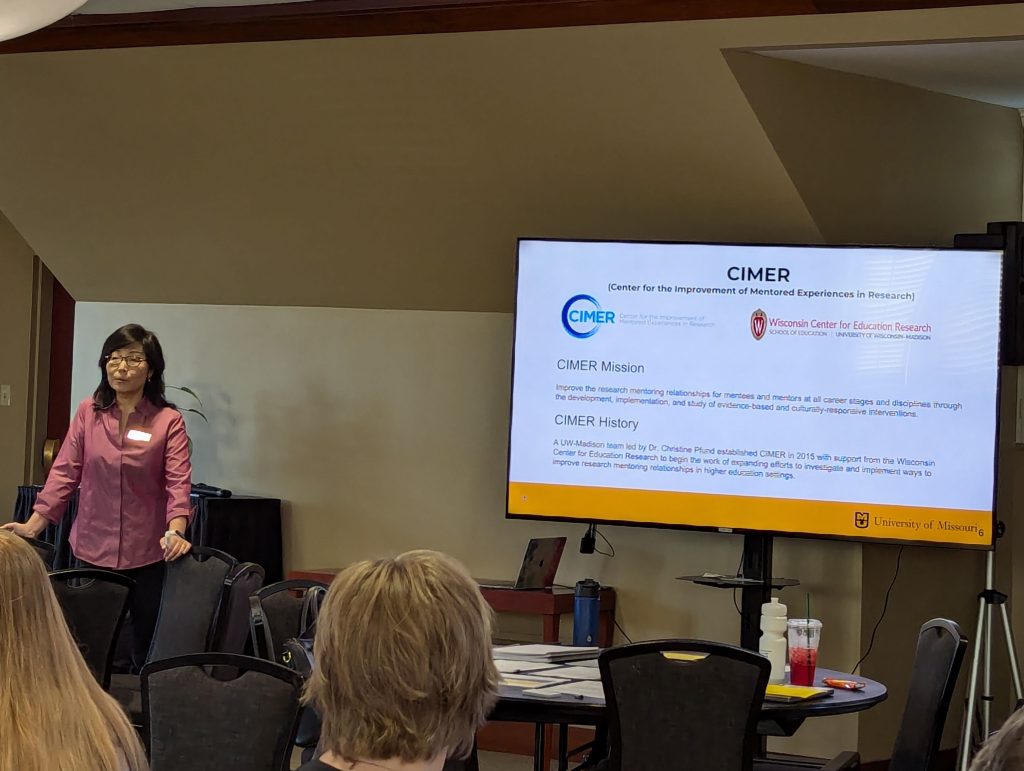
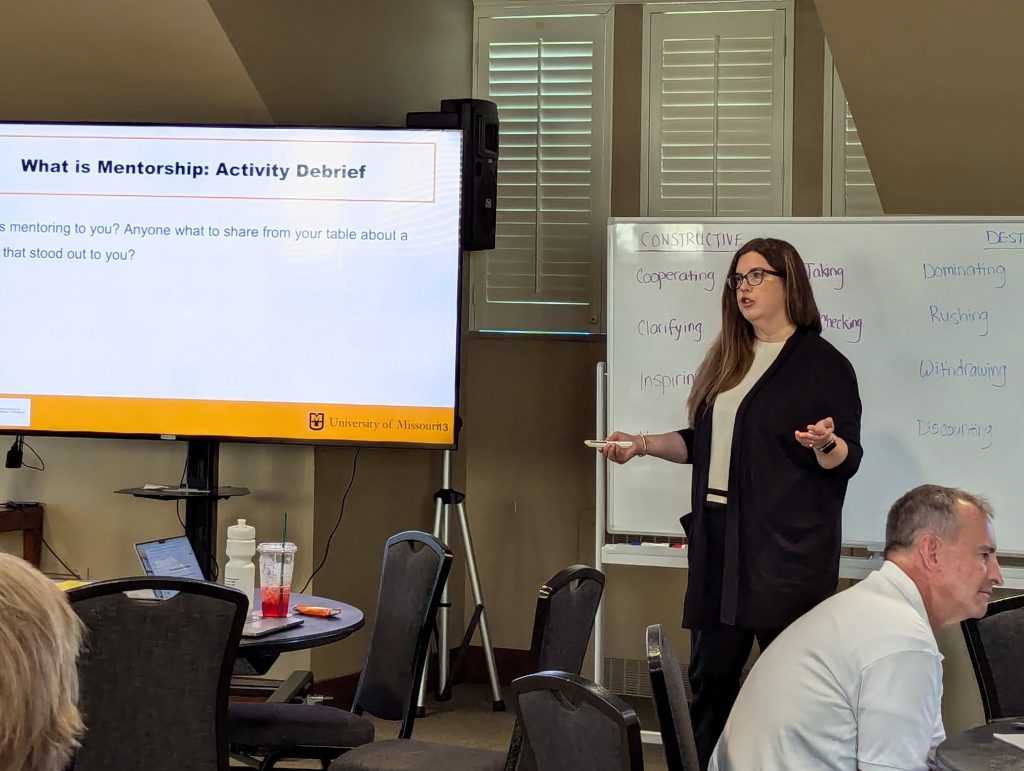
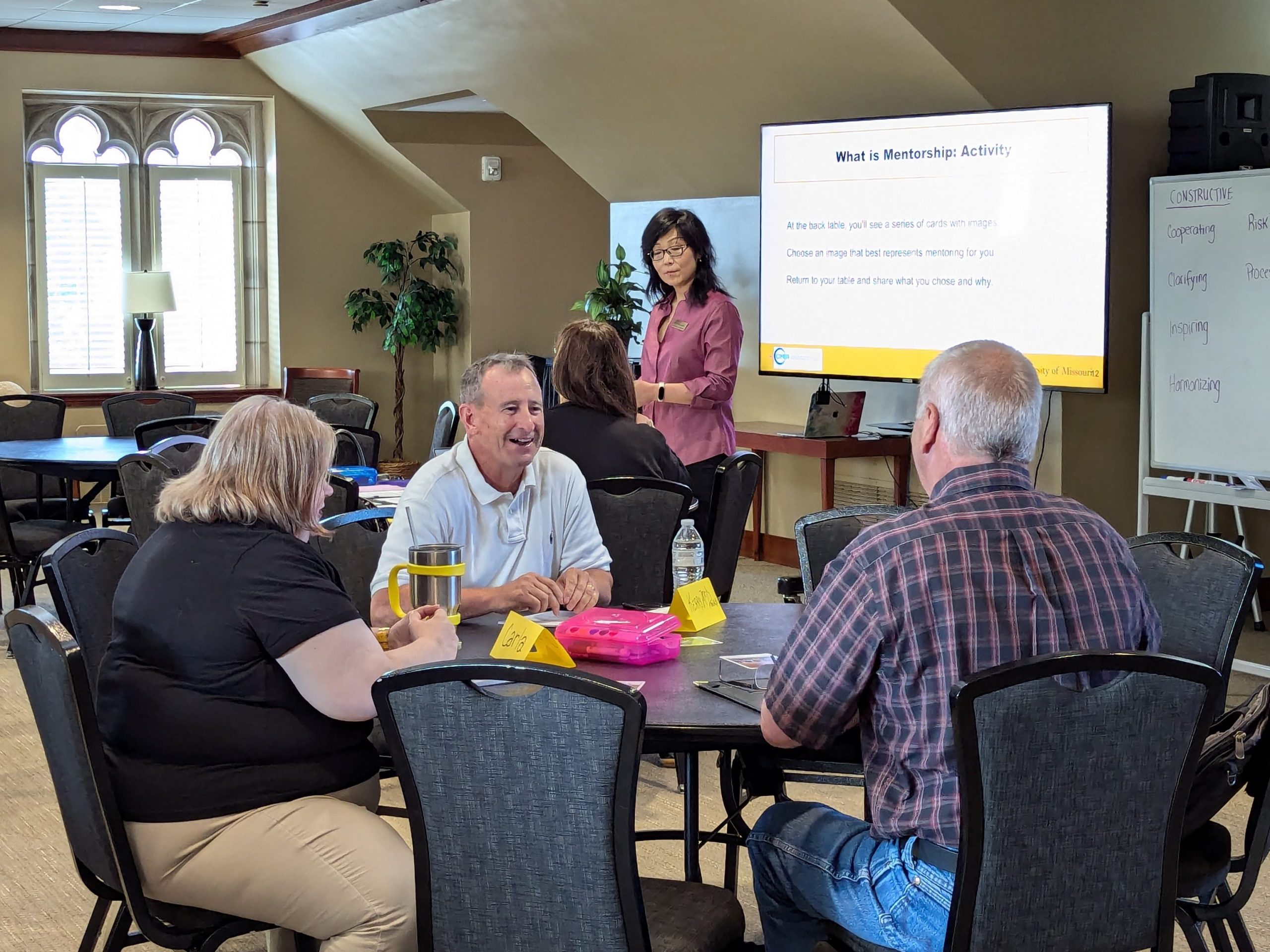
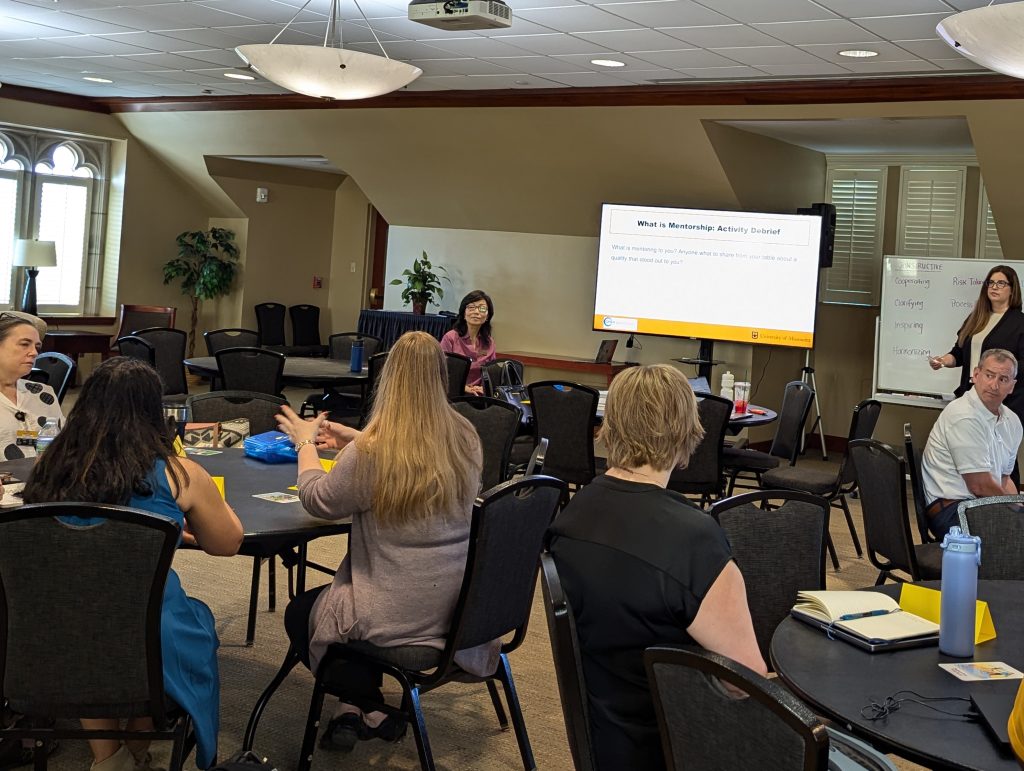
by Jade Elwess
Mentoring at Mizzou is a professional development program for faculty and staff who mentor graduate students, post docs or faculty and is co-facilitated by the Office of the Provost and the Graduate School.
Thirty-three faculty and staff attended training by CIMER (Center for the Improvement of Mentored Experiences in Research) in order to facilitate interactive mentoring workshops here at Mizzou. Mentoring at Mizzou, based on CIMER curriculum, started in 2023 and has since conducted18 sessions for various groups of faculty and chairs.
“CIMER is viewed as a national standard in mentoring curriculum, said Candace Kuby, associate provost for faculty affairs. “The curriculum is research-based and created as modules tailored to specific workshop participants. For example, the Mentoring at Mizzou facilitators can choose disciplinary specific case studies as part of the training sessions. This allows participants to dialogue with examples unique to their research and teaching practices.”
Jeni Hart, vice provost for graduate studies and dean of the Graduate School, said the training is an added value across the board for faculty.
“If you’re a high-quality mentor, you’re going to be a high-quality teacher,” she said. “If graduate students are having a good experience, [they] are also going to be more productive and committed, which will help you in in your own research goals.”
As of fall 2024, newly hired assistant professors are required to participate in the Mentoring at Mizzou training to be eligible to apply for doctoral faculty status and advise doctoral students. This policy was developed and approved by the Graduate Faculty Senate, the faculty governance body for graduate education in Spring 2024.
A New Approach to Teaching Mentoring
Hart was lucky enough to have an advisor in graduate school who became a mentor throughout her professional career. But some students aren’t that fortunate. “How do faculty learn how to become good mentors if they never had formal training or a good mentorship relationship in their own career?”
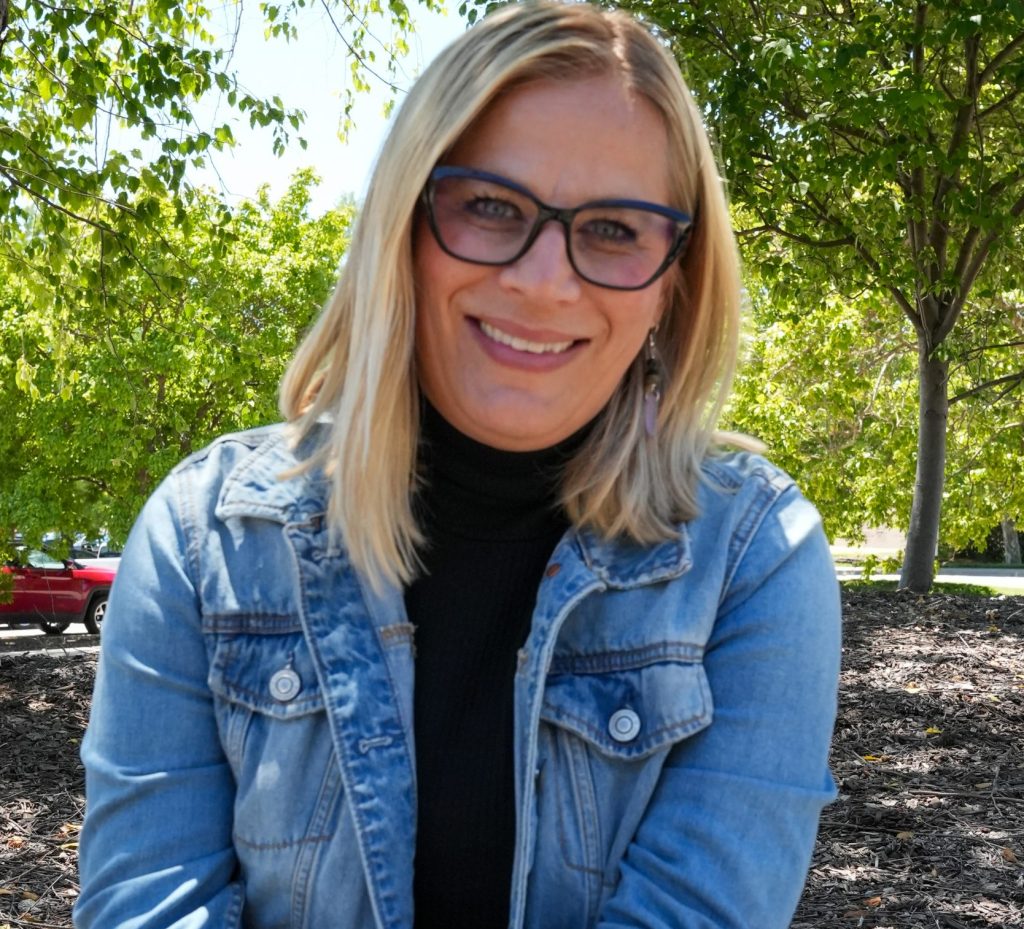
Lyria Bartlett, chair of Architectural Studies, had the Mentoring at Mizzou trainers conduct the training for her faculty in Fall 2023.
“From an educator standpoint, to expect somebody to know how to be a mentor, if you haven’t given them any training, you’re putting a lot of weight into whatever their experience was, good, bad or otherwise,” she said. “That’s their only gauge.”
Debora Bell, chair of Psychological Sciences, also had the training for her department in March 2024 and mentioned the “variability” in how people mentor, so this training was a way for faculty to have consistency in how they conduct mentoring relationships. In fact, she is working on developing a formal mentoring agreement this summer that can be used with mentees and mentors to set clear expectations on both sides.
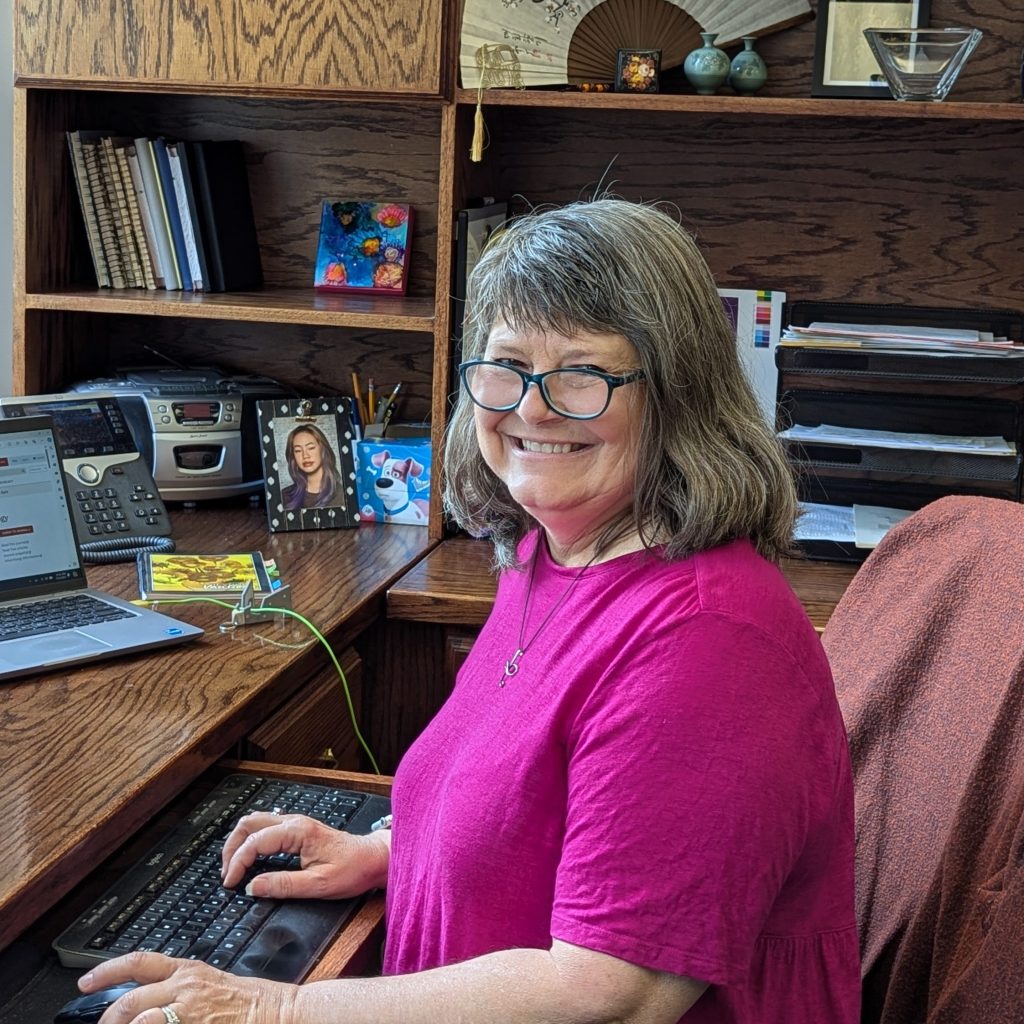
Faculty benefit from being mentored as well as graduate students. Much of the work faculty do is solitary, sometimes alone in a lab, so Bell believes mentoring provides faculty feedback and overall guidance about how to navigate higher education, do research or prepare for promotion and tenure.
She believes having a collegial group is very important, especially if you are a first-generation college student, or a student or faculty from another underrepresented group, to have a space to learn how to advocate for themselves.
Bartlett mentions the importance of the overall wellness of a student or faculty member when taking into account their specific needs and workload.
“I think that we all need to share it,” she said. “We’re all involved in this culture. When we sit down and we accept somebody into this program, we’re taking on a responsibility to do our very best to ensure that they can make it all the way through.”
CIMER training also emphasizes a group approach to mentoring, rather than a 1-1 relationship where one faculty member is expected to meet all the needs of one mentee. Instead, Bartlett and Bell both said they are looking at a team mentorship model so mentees have more than one person to advise them on different aspects of their professional life.
Also, the needs of a mentee may change over their career—a mid-career faculty member may need guidance on preparing for an administrative role, for example.
Hart believes this program is a good recruitment tool for graduate students so they know that as an institution, we take mentoring and professional development seriously.
“Strong mentoring improves the quality of a graduate student’s experience and their success,” she said.
Who Should Participate in Mentoring at Mizzou?
Whether you are a faculty member or a department chair, the four-part training series is worth the investment of time.
Effective mentoring programs also strengthen faculty retention and from a chair’s perspective, it is important to have faculty who are strong mentors who can help newer faculty.
“One of the pieces of feedback I’ve gotten with our recent hires and our recent retentions, is that a big part of why people want to come here and stay here is because of the relationships,” Bell said.
Bell suggested that even participants who consider themselves to be a good mentor should go through the training with an open mind and find a few things to “add to your toolbox.” Her faculty benefited from the small group discussions and the interactions during the sessions.
Bartlett scheduled her trainings during their regular weekly faculty meetings so that the time was already blocked out in everyone’s schedules. She opened it up for both graduate faculty and students so that there could be open conversations.
Recent sessions include a four-part online training session held in August and training specifically for chairs took place in September.